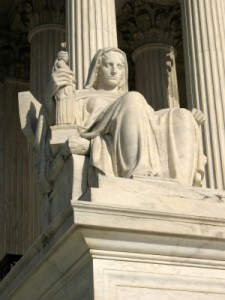 Last year, KBR sued investor and USPX member John Chevedden after he submitted a proxy proposal seeking annual elections, rather than the current system of staggered three year terms.
Last year, KBR sued investor and USPX member John Chevedden after he submitted a proxy proposal seeking annual elections, rather than the current system of staggered three year terms.
As reported by Ted Allen of ISS:
Rather than go through the SEC’s no-action process as hundreds of companies do each year, KBR obtained a declaratory ruling from a federal judge in Houston, who concluded–despite contrary SEC staff no-action decisions at that time–that Chevedden had failed to provide sufficient proof of ownership. The ruling was made by the same federal judge who allowed Apache Corp. in 2010 to omit a shareholder proposal filed by Chevedden on proof-of-ownership grounds.
Earlier this week KBR told the SEC they will seek shareholder approval at this year’s annual meeting to fully declassify by 2014. The board also adopted a majority voting bylaw.
Chevedden, who also filed a 2012 declassification resolution at KBR, told Huston Chronicle reporter Loren Steffy, “It’s a good step.”
Steffy writes,
It’s good to see KBR moving out of the stone age of corporate governance. The next step: acknowledging shareholders actually exist. (KBR embraces ideas of investor it sued).
Chevedden told Ted Allen, the company’s board “deserves credit for taking a positive step to be more accountable to shareholders.” (KBR Agrees to Declassify Its Board)
I think Chevedden is being too charitable. KBR fights and implements “on their own.” In bypassing the SEC’s whole no-action process, KBR, like Apache, denies the validity and value of shareowner input. It is if these company’s are run by dictators overly concerned with saving face.
Any criticism, any suggestion, even by an investor who owns part of the company, is seen as possibly undermining their authority, rather than in the spirit of cooperation and mutual benefit. This type of behavior may be common among leaders in Iran or North Korea. Fortunately, it is rare in American corporations. Has KBR really turned over a new leaf? I sure hope so.
Apache again filed what I consider to be a slapp suit against Chevedden for having the audacity to file another shareowner proposal, claiming he can’t prove he owns shares in their company even though he filed a letter from his bank saying he does and a letter from their clearing bank saying his bank held the shares.
What bank would risk their reputation to issue such statement if it weren’t true? What two banks would conspire to make fraudulent claims to a major corporation on behalf of a small retail shareowner? The whole idea of Chevedden having to go to court again for a third time with Apache is ridiculous.
To contact James McRitchie directly, please email jm@corpgov.net


















Christopher Bayer, Ph.D. says:
Attitude structures control and often dictate reality, and as such they can jeopardize the sustainability of companies we co-own. Houston Chronicle reporter Loren Steffy’s reference to corporate governance as a “stone age” holdover represents archaic thinking at it’s most precise. “Should we let them [corporations] run wild, or should we [shareholders] rein them in?” After all, they’re dancing with our money!
On the Street it’s always been about money, power, and control. Frankly, to think otherwise is to be naive. And as Greg Smith so eloquently pointed out in his recent New York Times Op-Ed piece, narcissism and psychopathy are real life factors and challenges in the companies we co-own.
These factors impact day to day operations, morale, client satisfaction, and the corporation’s survival. Corporation reputation risk management is indeed a valid business construct.
In my practice as a professional psychologist I frequently encounter, in Street personnel, a clinical syndrome known as megalomania. It’s characterized by delusional fantasies of power, omnipotence, and relevance. It comes from the ancient Greek megalo meaning large or great, and mania meaning madness or frenzy. As Mr. McRitchie implies this type of behavior may be common with the leaders of Iran and North Korea, but “it is rare in American corporations.” Two of the major reasons extreme behavior are rare in American companies is a direct function of corporate goverance and shareholder activism.
Shareholders have a voice, they have rights, privileges, and entitlements as do corporate board members and managers. Plainly put: we continue to all be in this together.